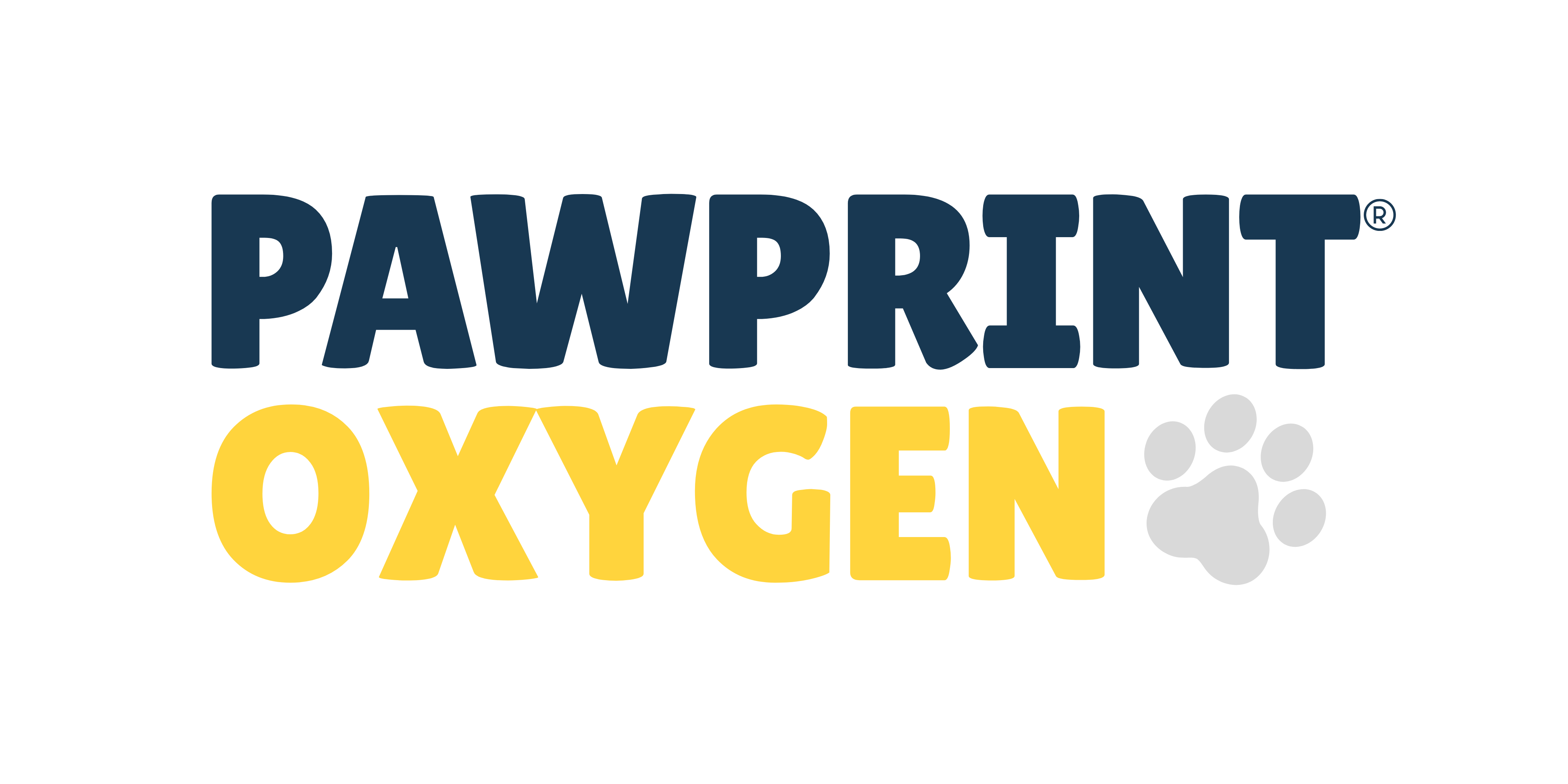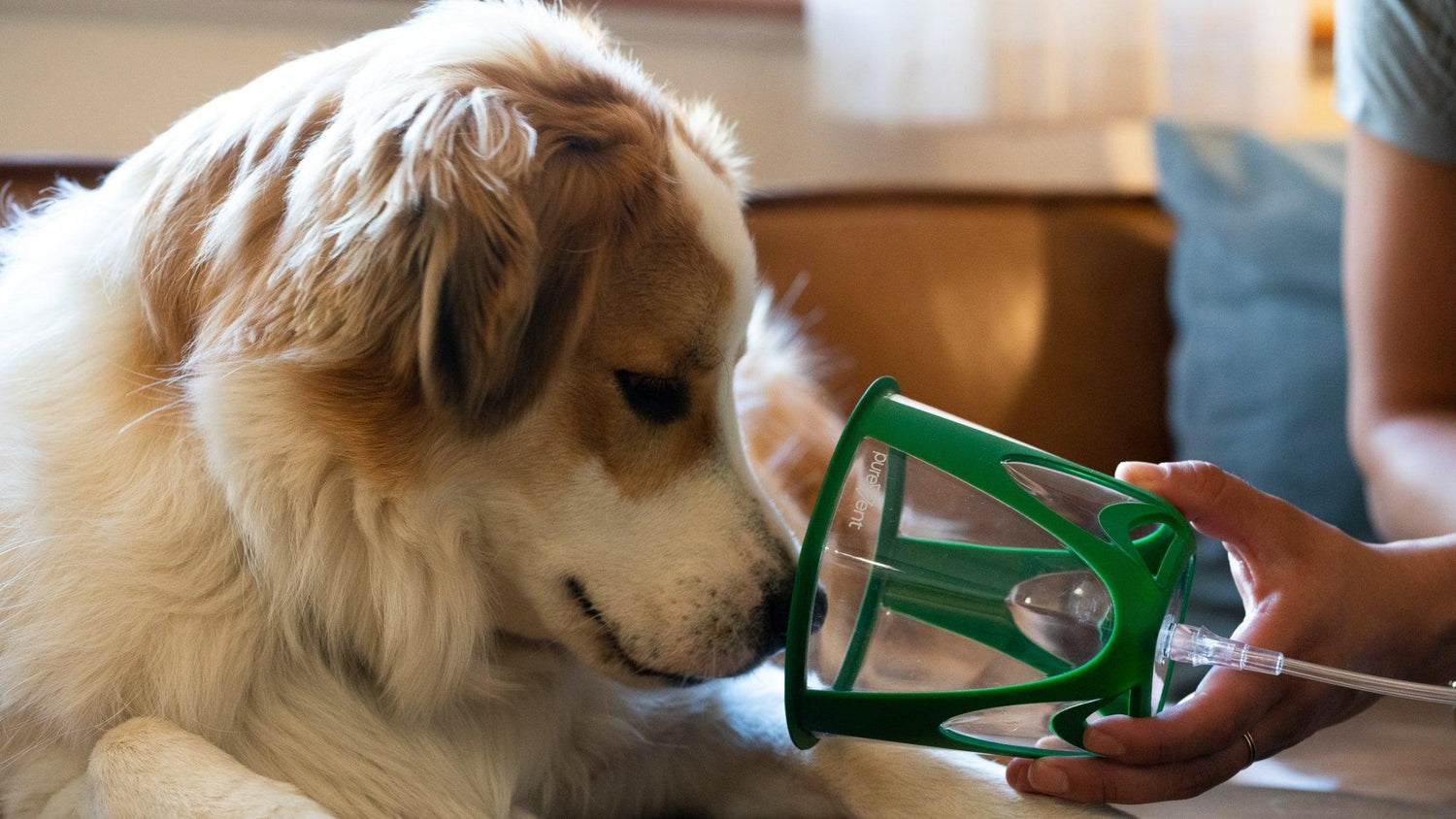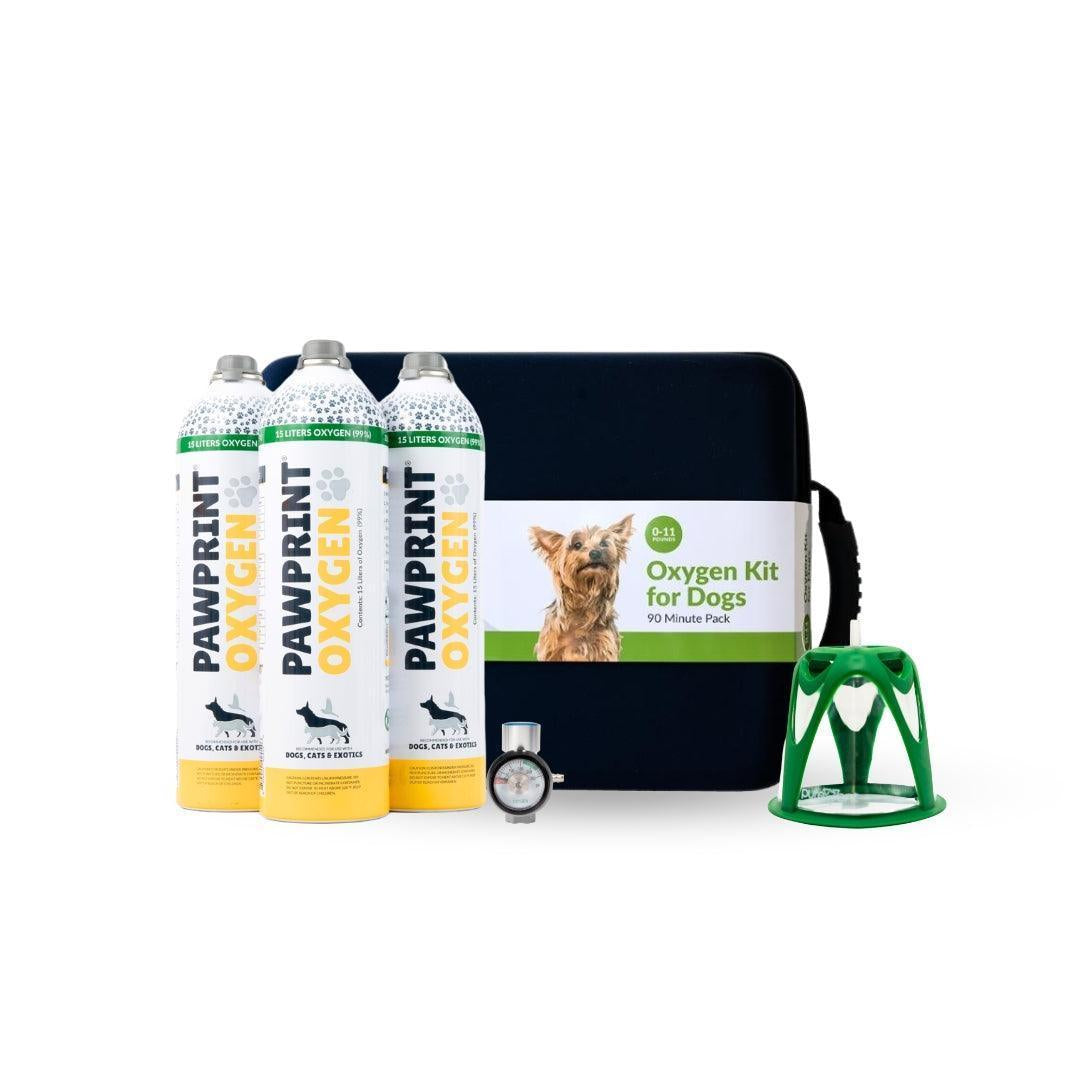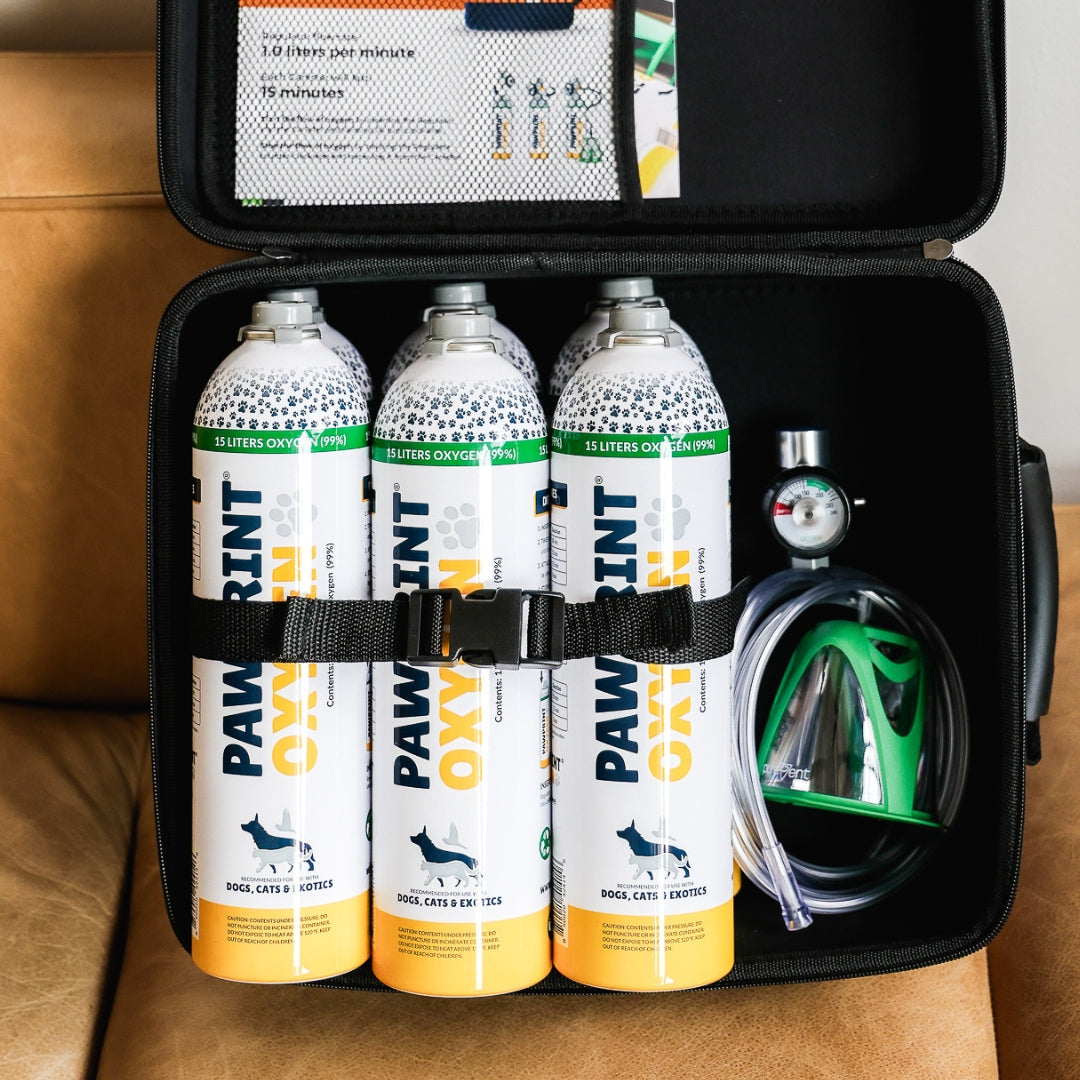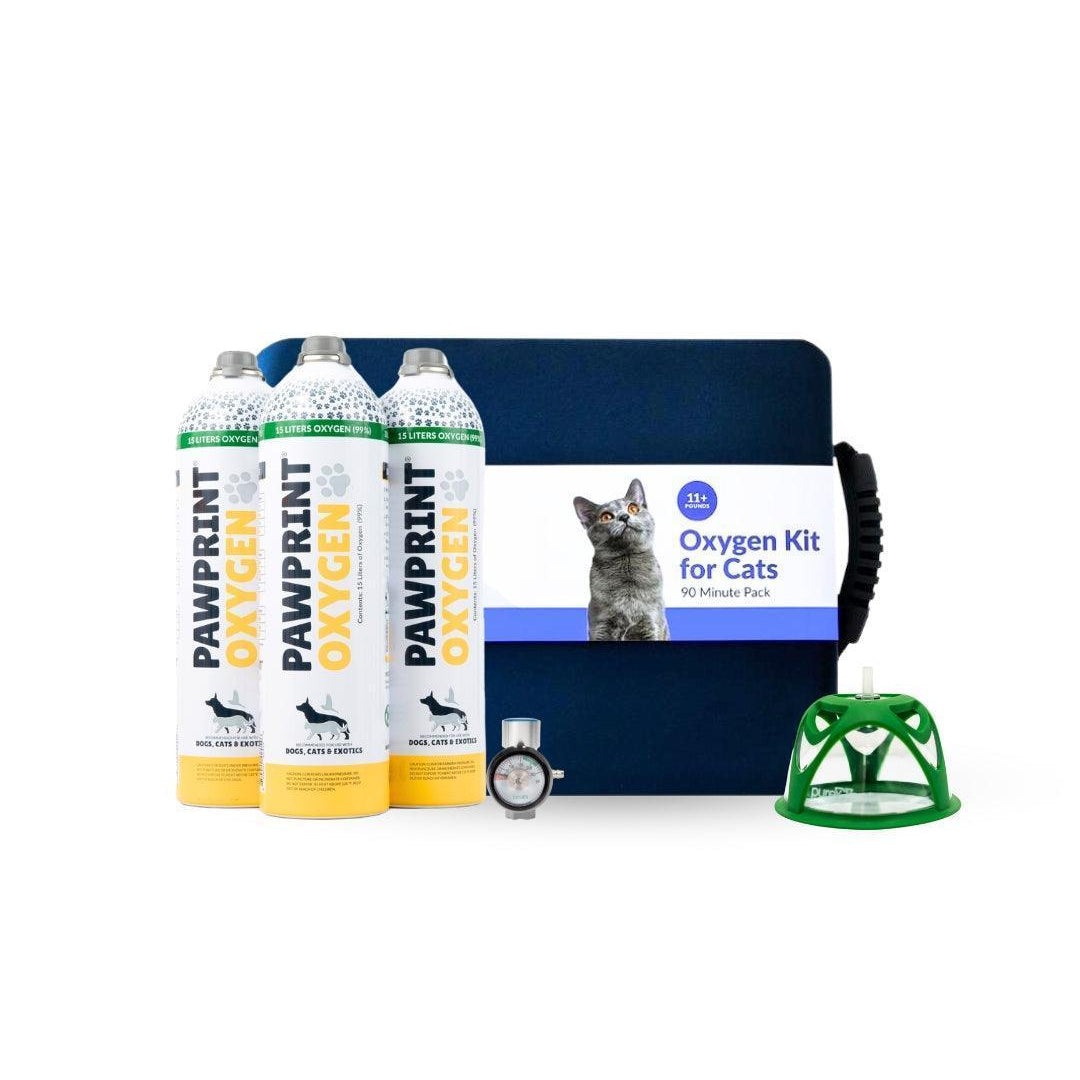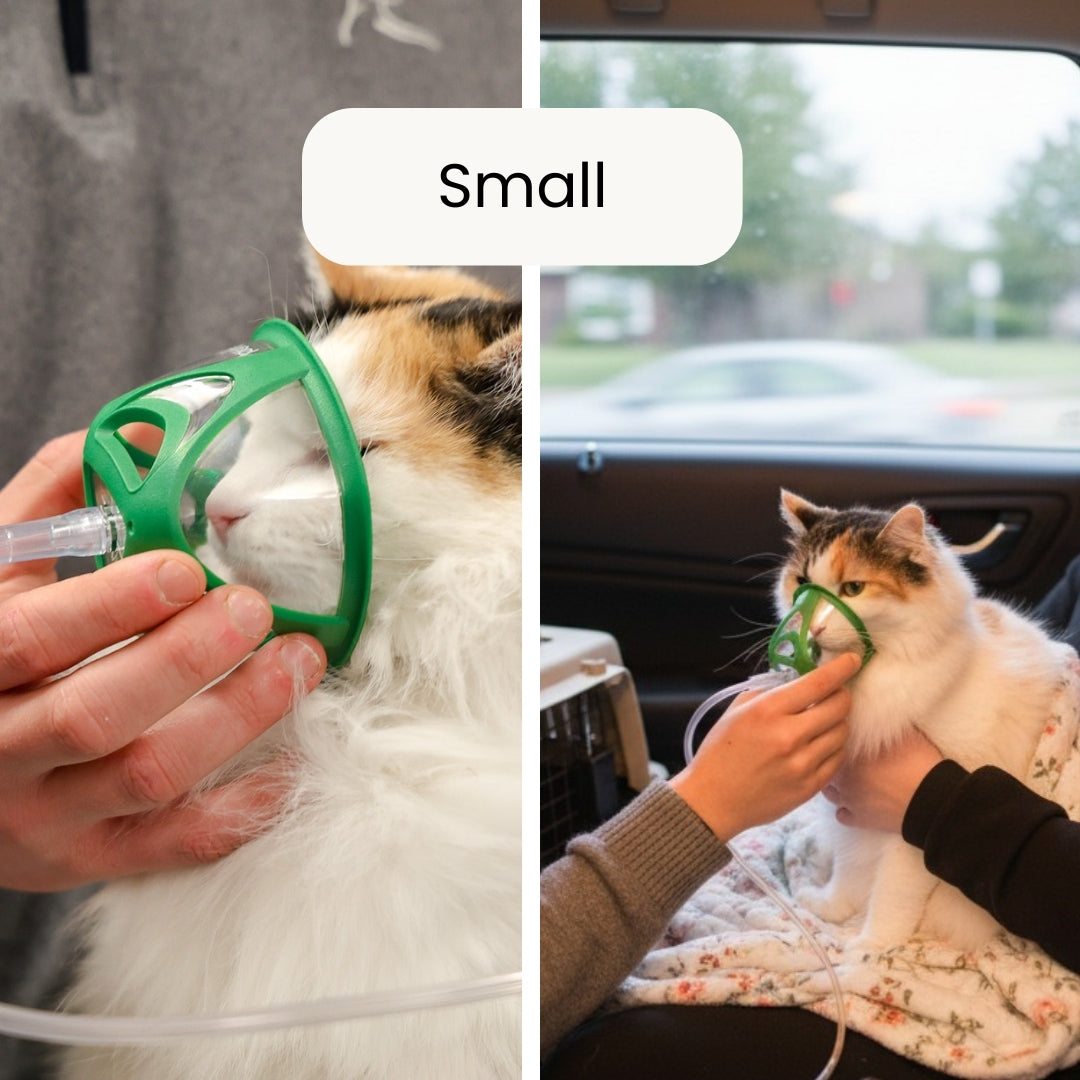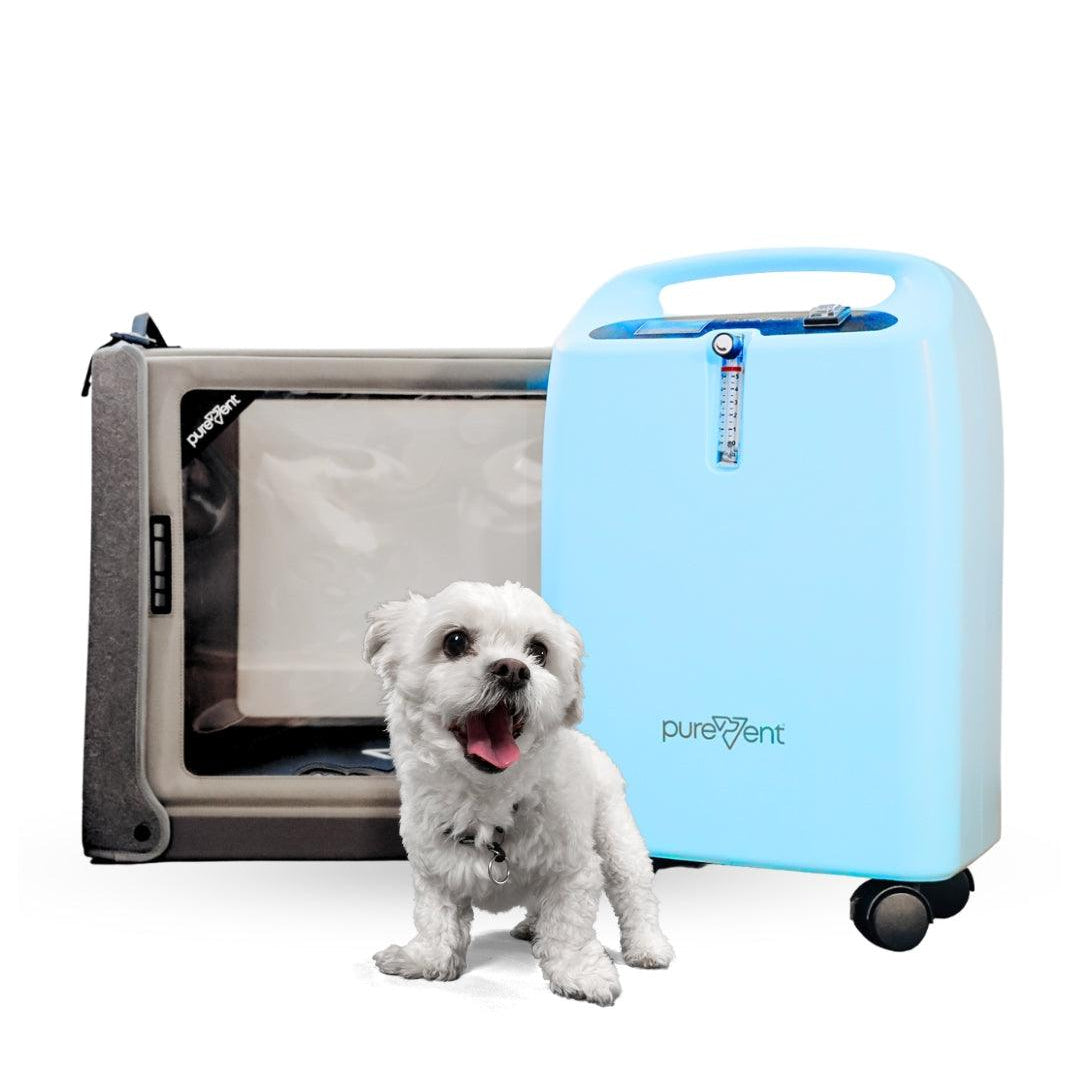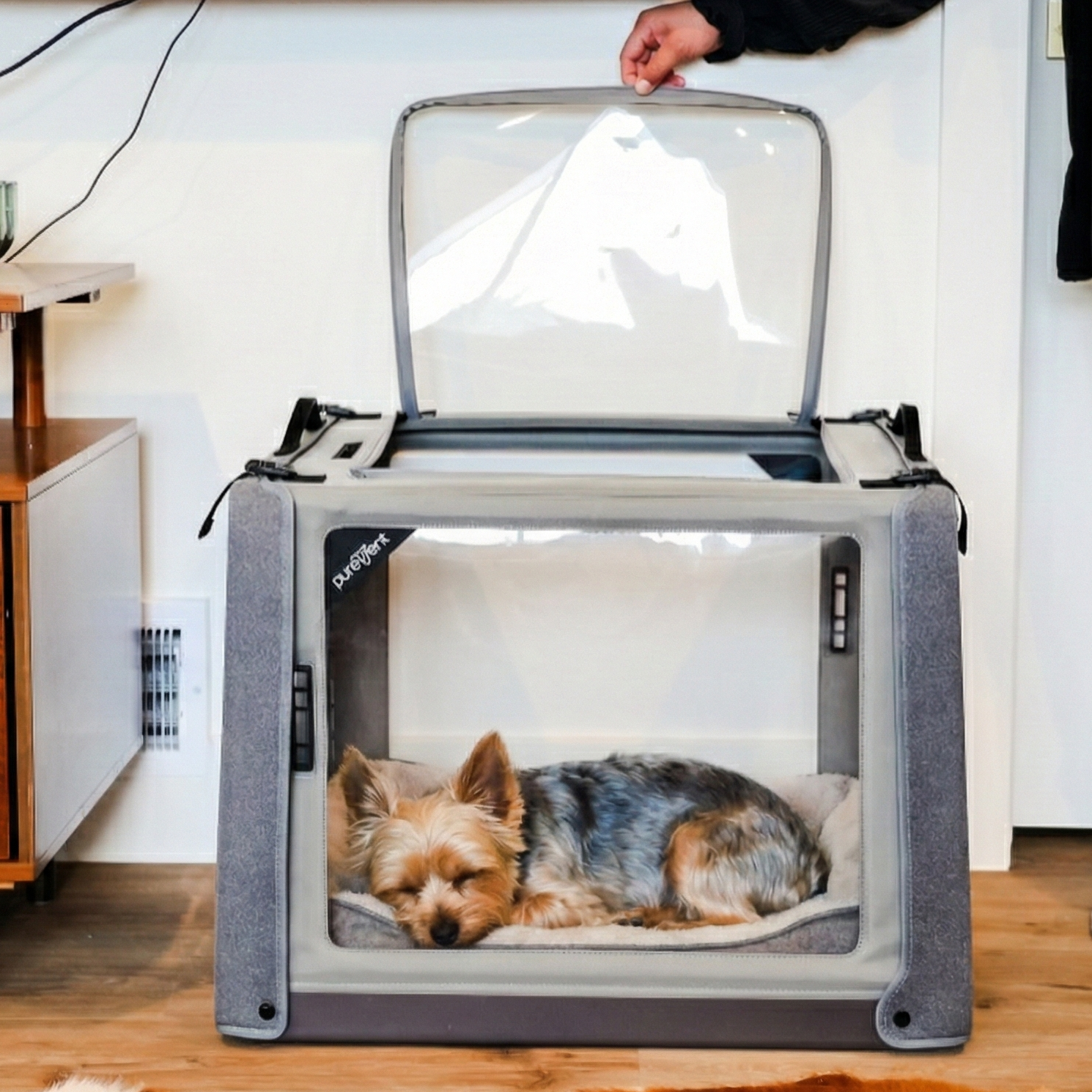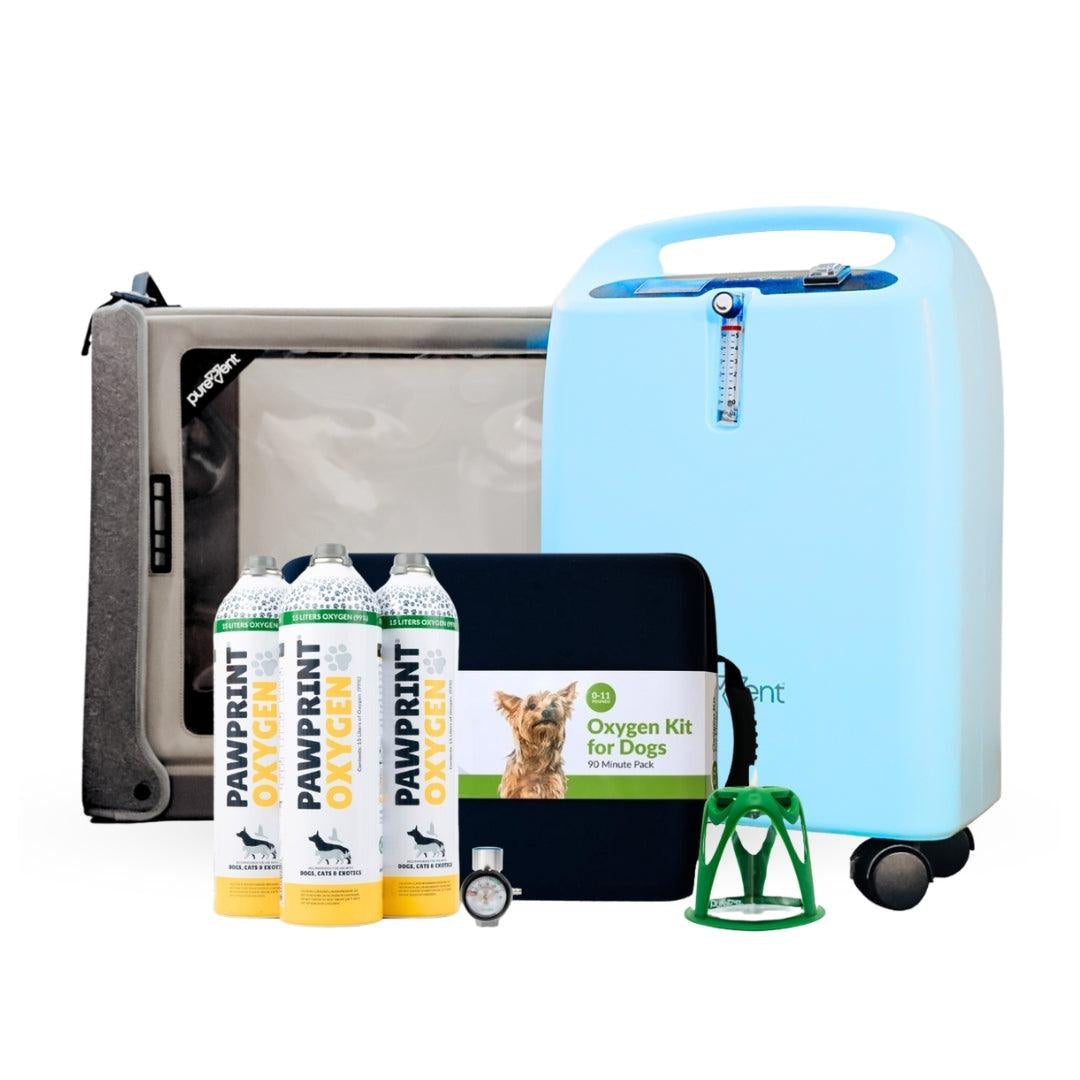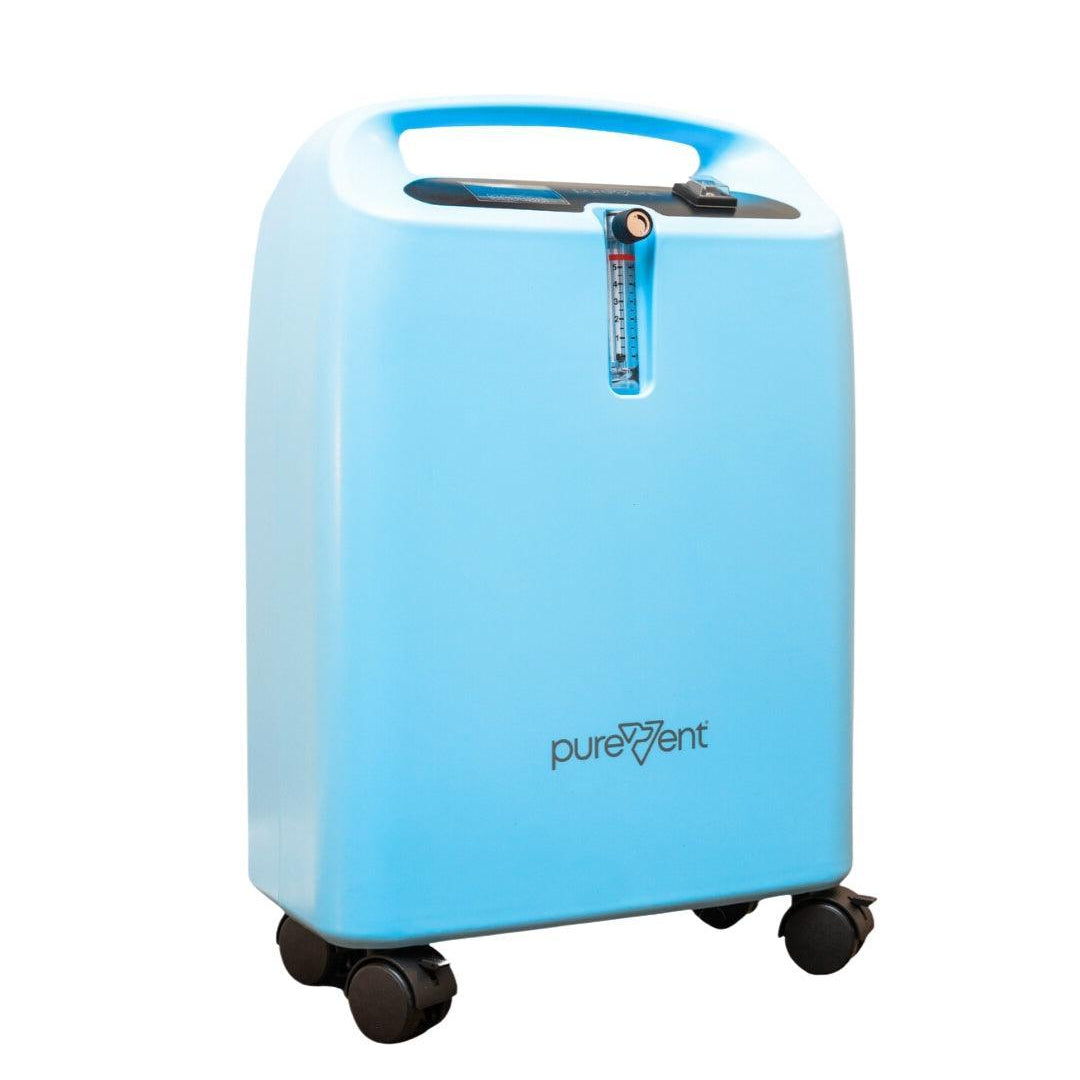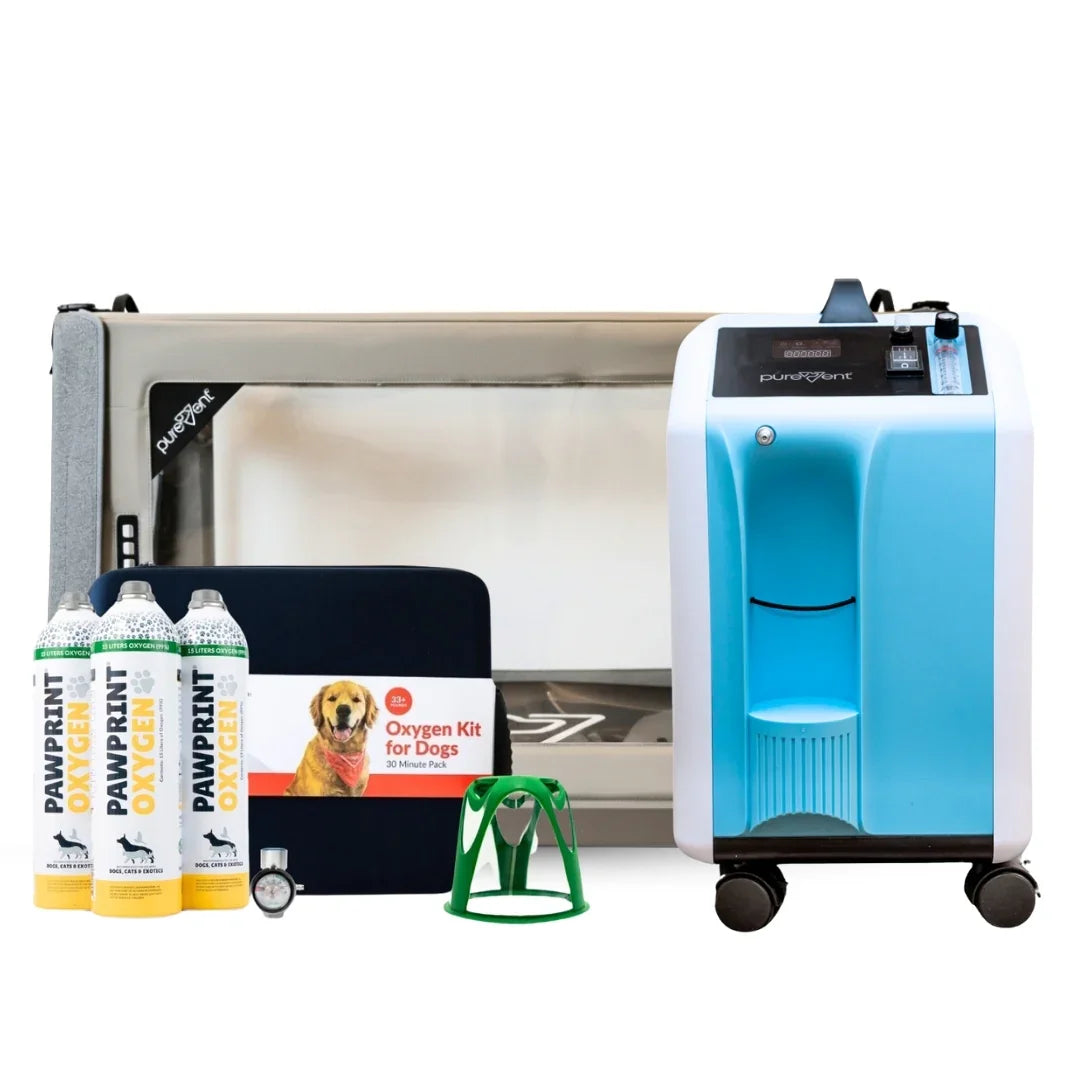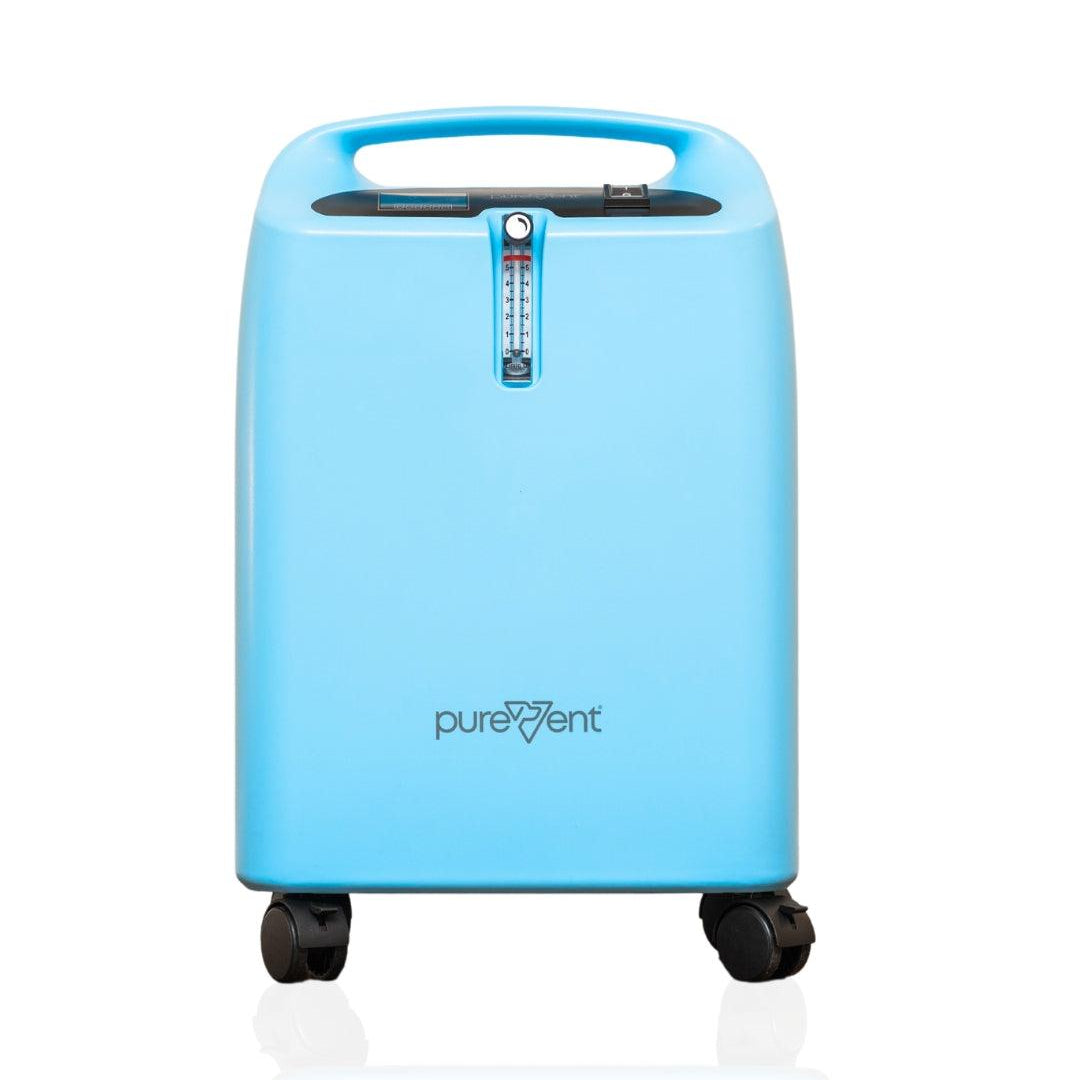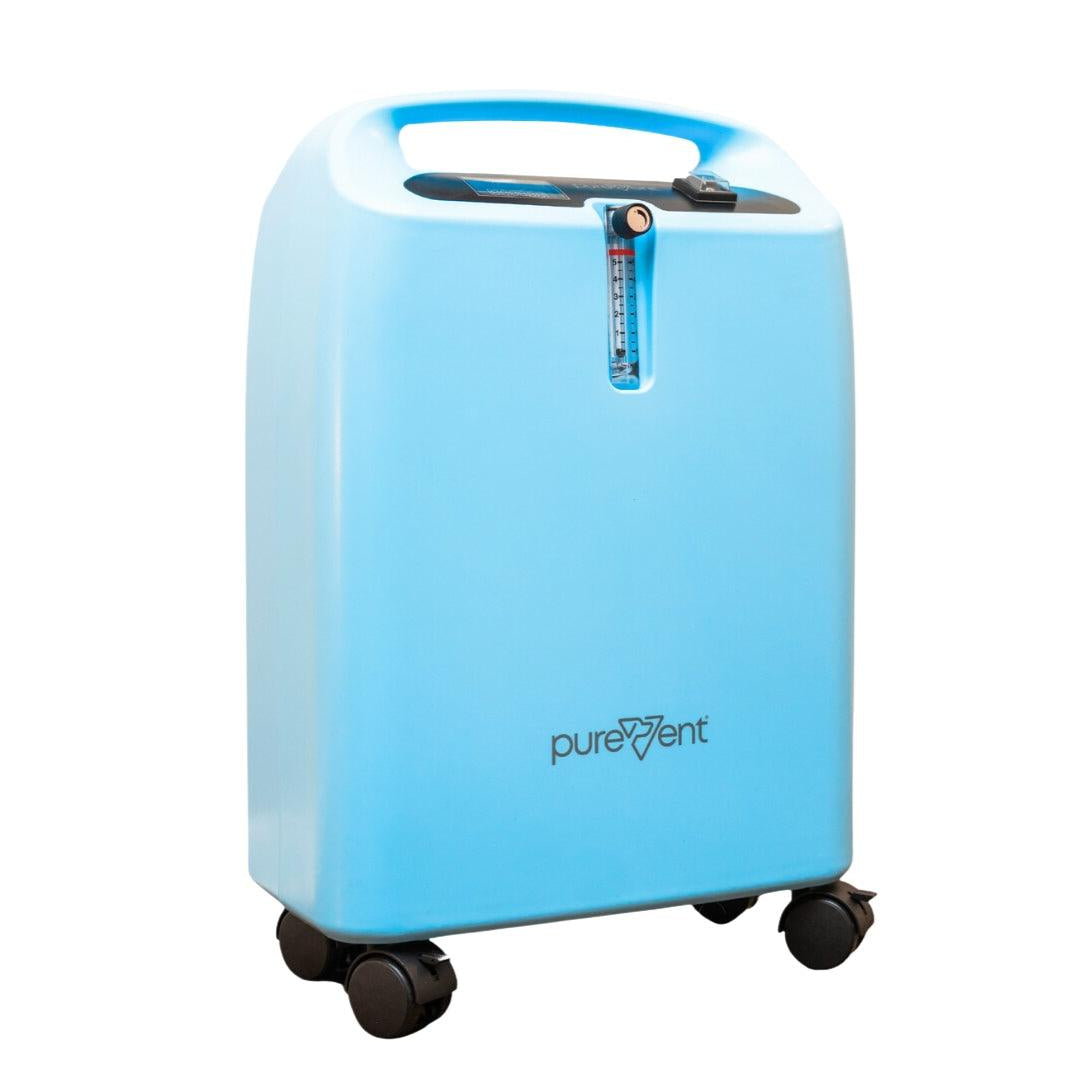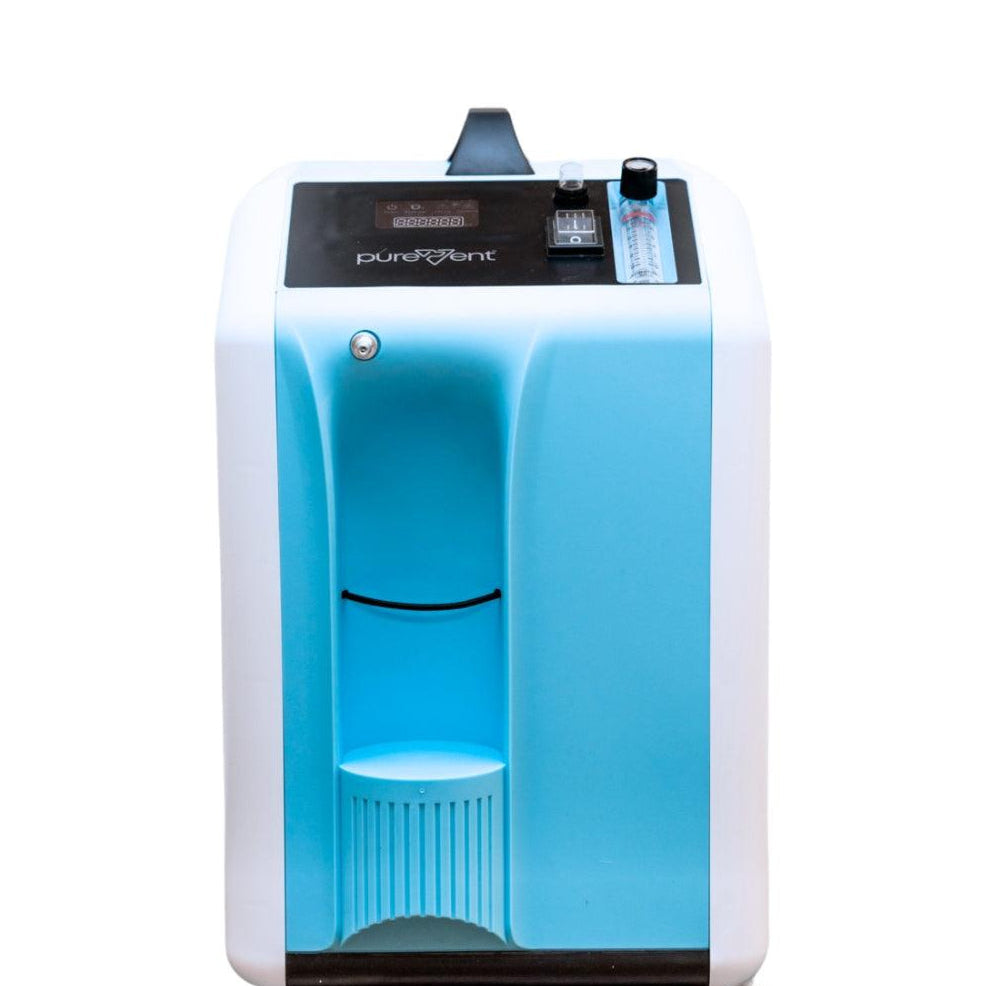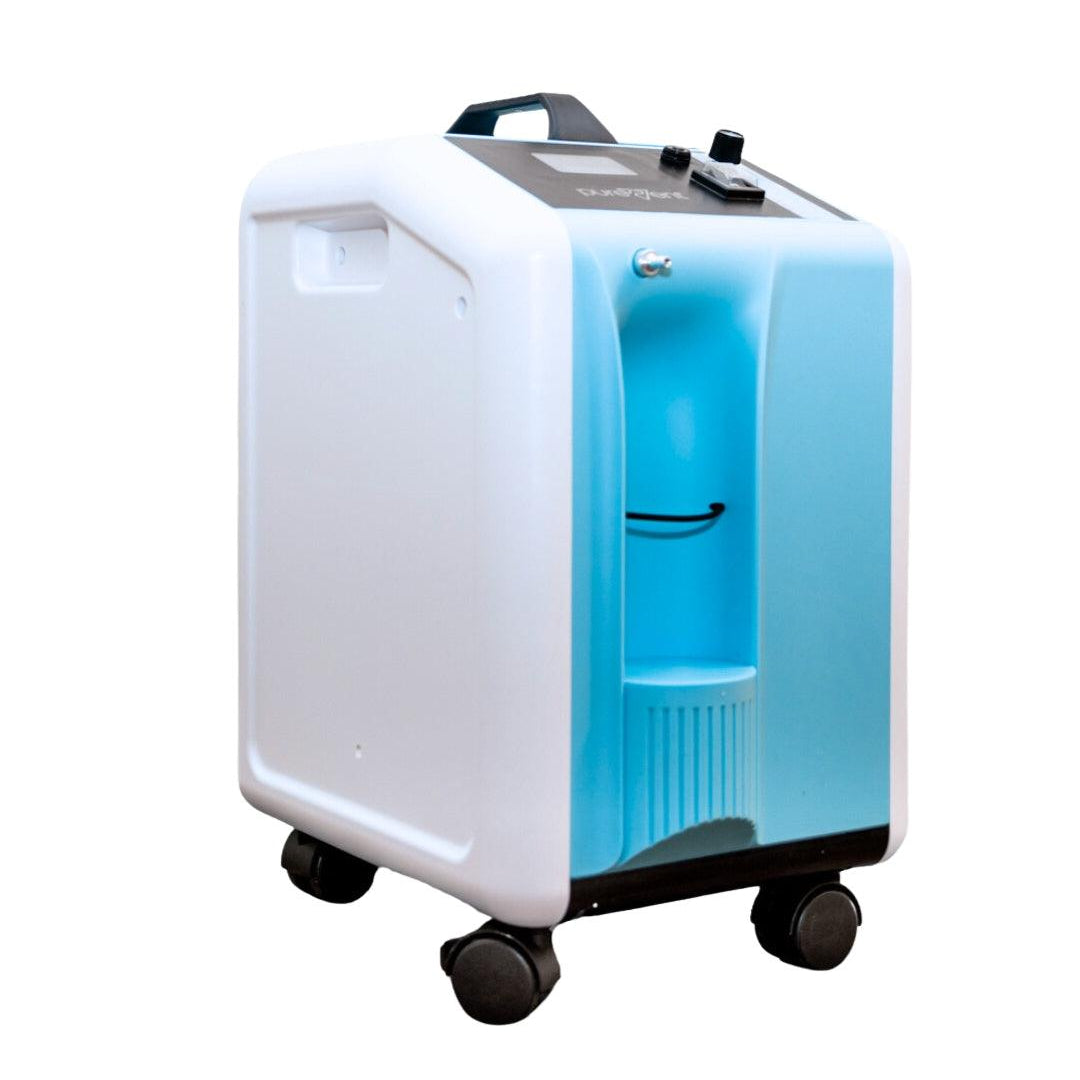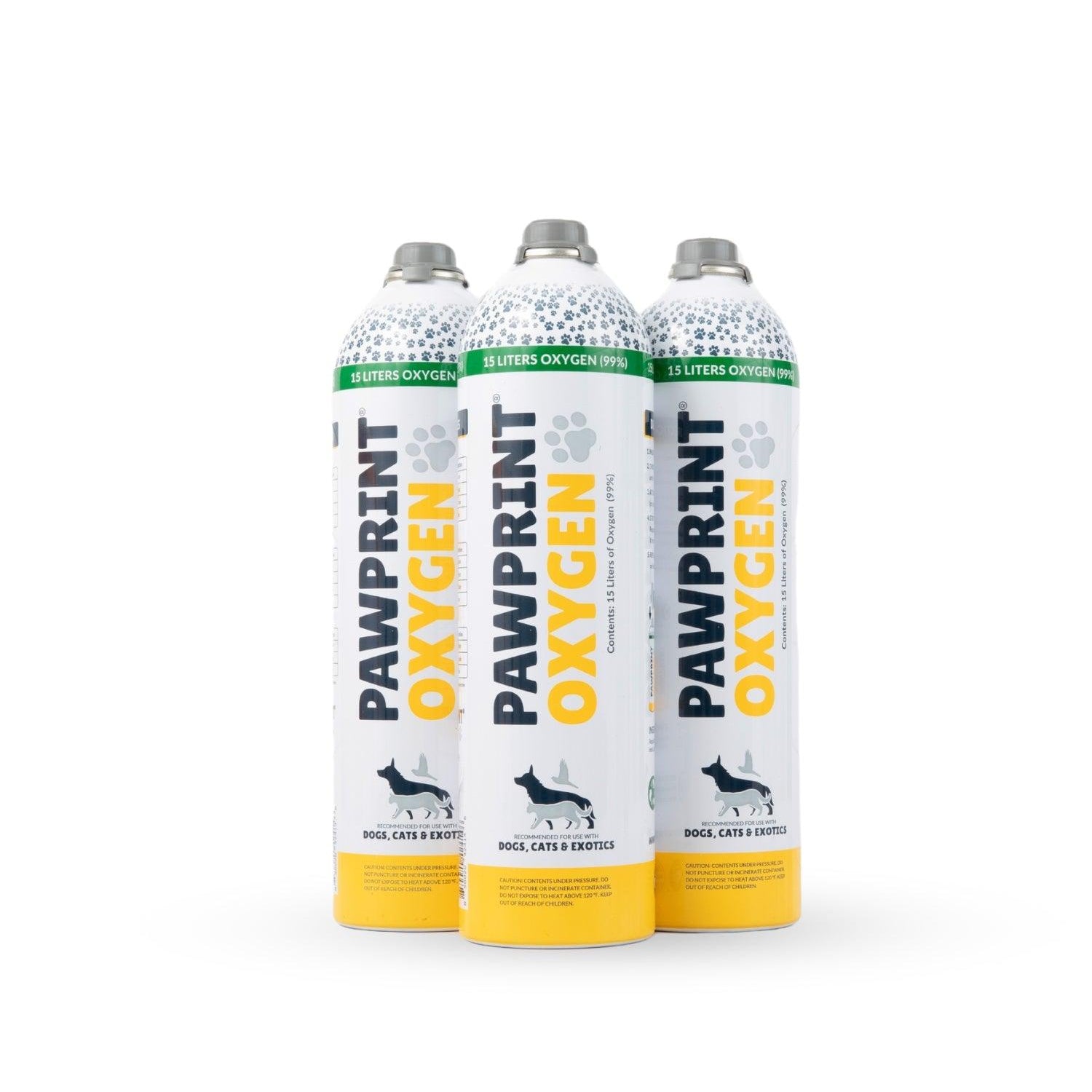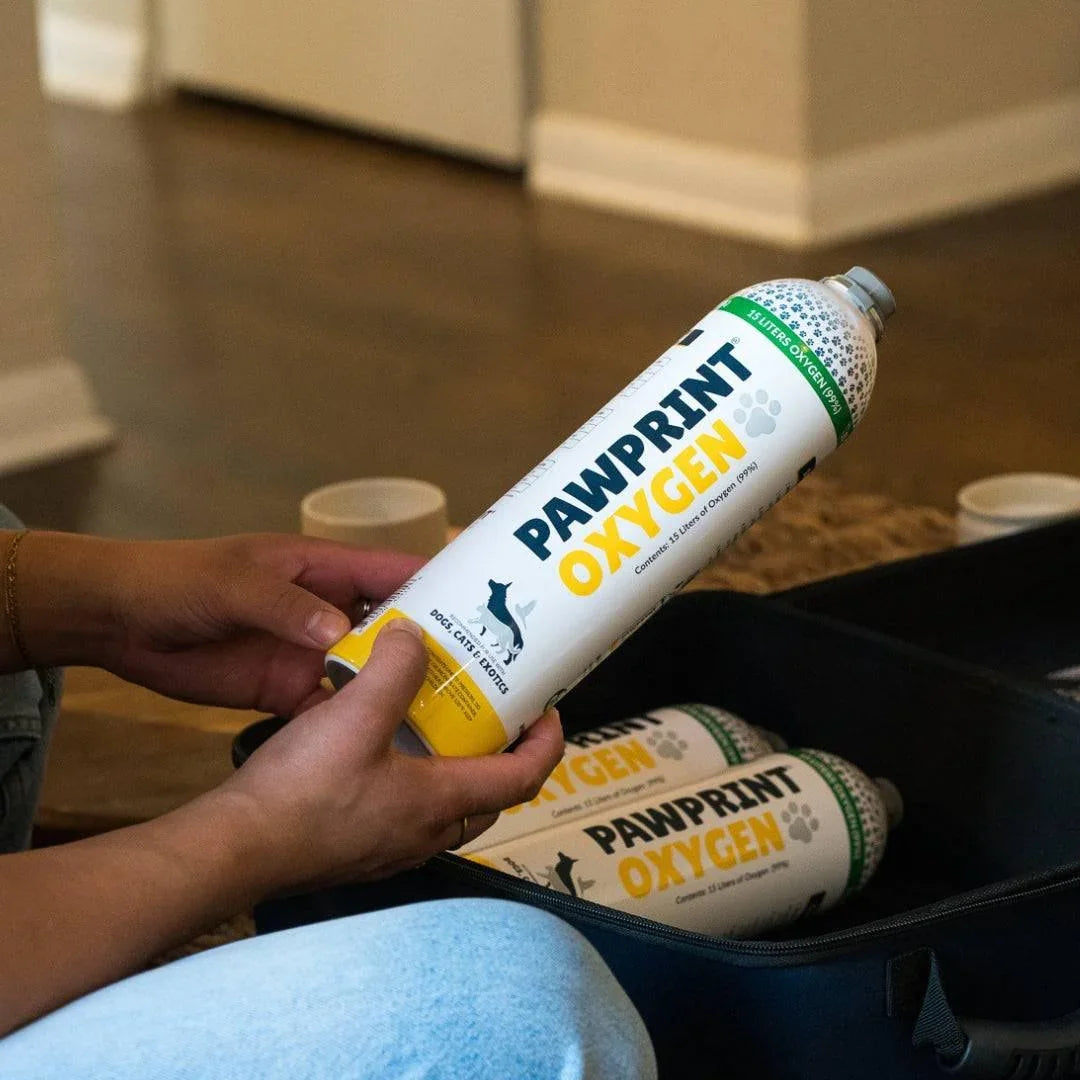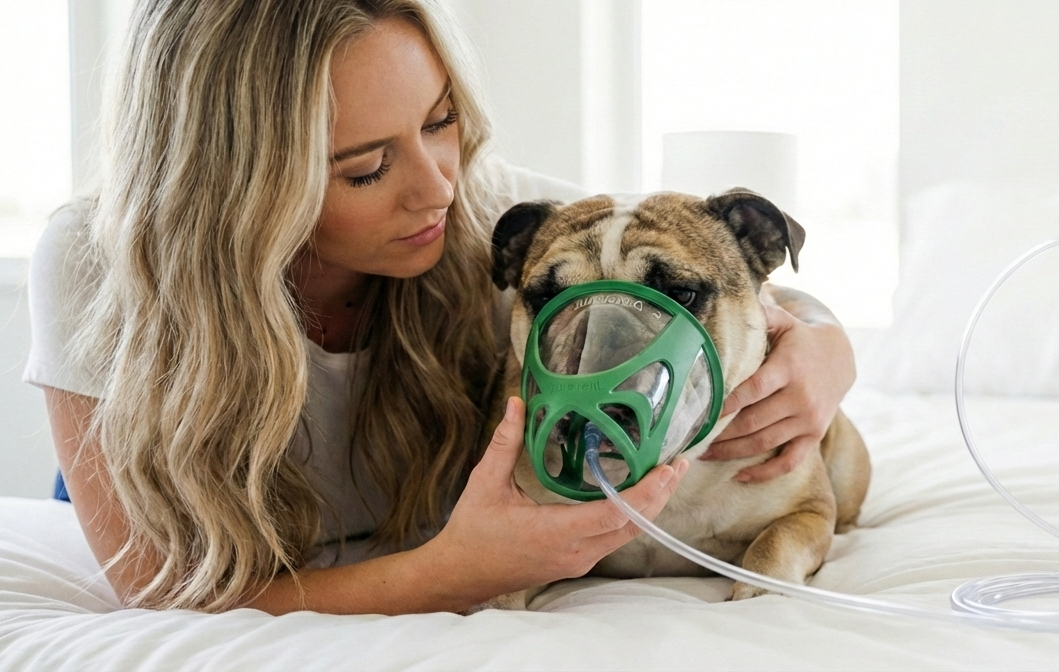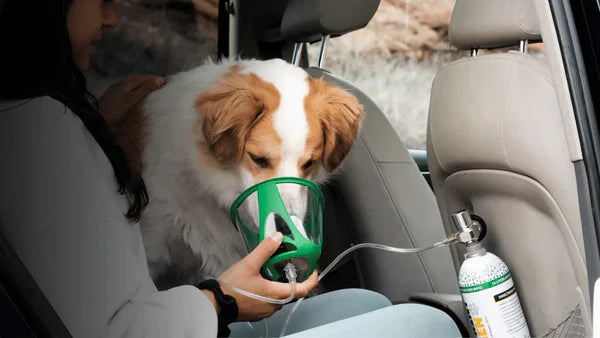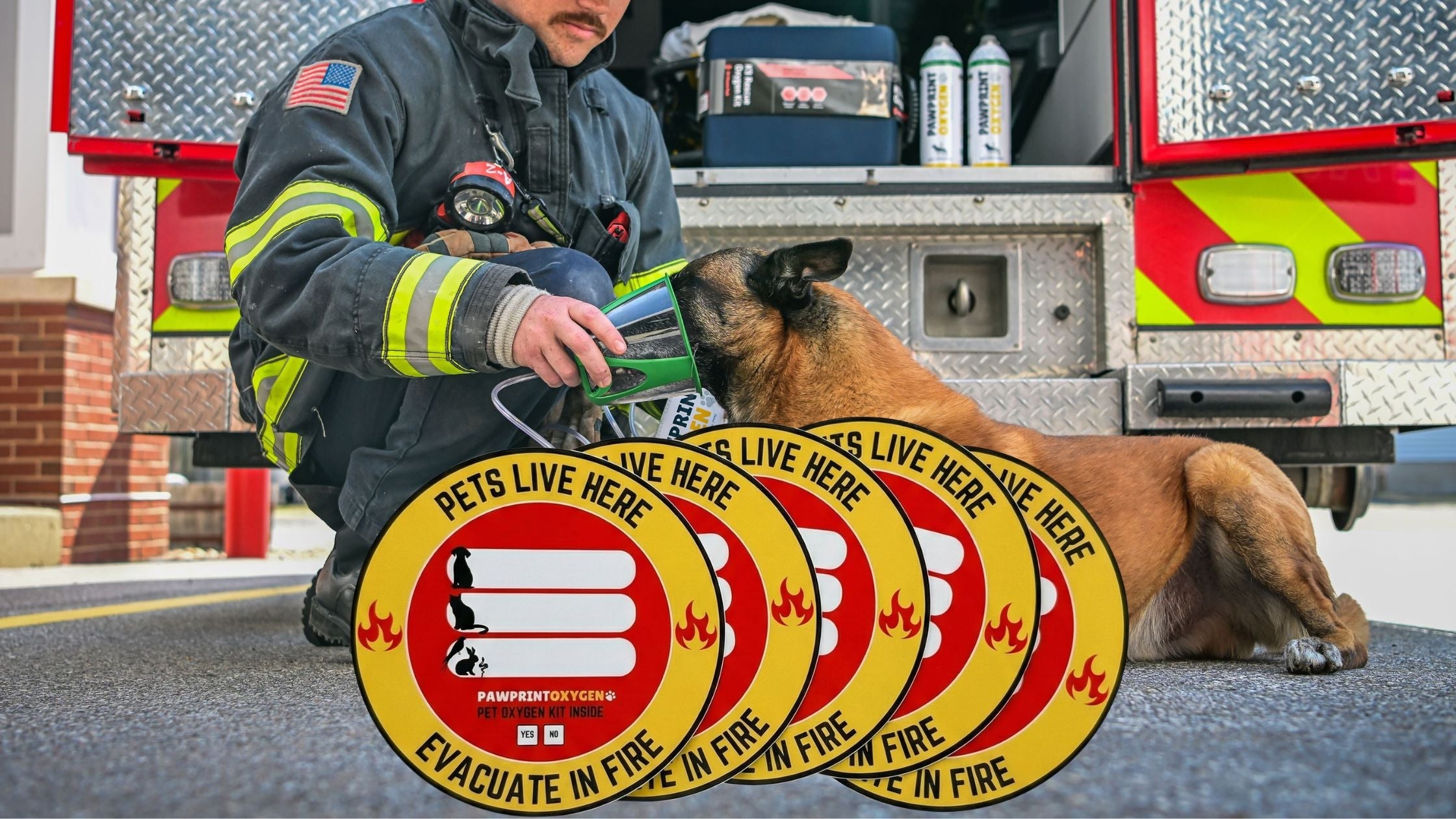In this post we answer some of the most commonly asked questions about using pet oxygen masks for dogs, cats, and our other furry friends. As the largest provider of pet oxygen masks in the United States, we have spoken with thousands of veterinarians and pet owners about how to provide effective oxygen therapy to pets at home, during transport, and at the veterinary hospital.
How can I get my pet used to using the PureVent Pet Oxygen Mask?
While this is an initial concern of many pet parents, we have found that most pets are accepting of the pet oxygen mask, especially once they have started to feel the positive effects of the oxygen therapy. However, If you find that your pet is not accepting the pet oxygen mask, try practicing before an emergency situation arises.
It is important to note that in your pet's moment of need for Oxygen, there are few animals that will deny the mask when it is helping them breathe.
Treat Training
You can try using your pet's favorite treat, liquid treat, peanut butter to encourage your pet to accept the pet oxygen mask.
How to Use the PureVent Pet Oxygen Mask
Step 1: Attach the oxygen tubing to the mask.
Step 2: Attach the oxygen tubing to the regulator that comes with your kit or if using another oxygen source, such as an oxygen concentrator, attach to that source.
Step 3: Place the PureVent Pet Oxygen Mask around the pet's nose and mouth to begin therapy.
How do I clean the PureVent Pet Oxygen Mask?
PureVent Pet Oxygen Masks can be easily cleaned for safe reuse. Cleaning your pet oxygen mask will not only extend the life span of the mask but create a safe clean environment for your pet.
1. Gently wash the PureVent Pet Oxygen Mask using a mixture of warm, soapy water.
2. Then, rinse the PureVent Pet Oxygen Mask under warm water to ensure that you have rinsed out all of the soap.
3. Lastly, pat the PureVent Pet Oxygen Mask dry with a towel.
Cleaning Tips : Make sure that the PureVent Pet Oxygen Mask is cleaned after each use and is completely dry before it is used next.
Why is there venting on the PureVent Pet Oxygen Mask?
It is very important to use a pet oxygen mask that has venting when administering oxygen therapy to a cat, dog, and our other furry friends.
It is crucial to mitigate CO2 buildup while a pet is using an oxygen mask to prevent hypercapnia, a condition characterized by elevated levels of carbon dioxide in the blood. When a pet inhales pure oxygen, it is vital that exhaled CO2 is efficiently removed from the mask and surrounding air to ensure proper respiratory function. Failure to adequately ventilate CO2 can lead to respiratory acidosis, where the blood becomes too acidic, impairing the pet's normal physiological processes and potentially leading to symptoms such as confusion, lethargy, and increased respiratory rate. Prolonged hypercapnia can exacerbate respiratory distress, reduce the effectiveness of oxygen therapy, and can even be life-threatening. Therefore, ensuring proper ventilation and CO2 clearance while using an oxygen mask is essential for maintaining the pet's respiratory health and overall well-being.
Did you know?
More than 500,000 pets are affected by house fires each year. Fire fighters and first responders use pet oxygen masks to give these pets a fighting change to survive.
You can purchase pet oxygen masks to donate to your local fire department to help other pets in need.
Oxygen is the first line of treatment for emergency recovery. Many veterinary hospitals and emergency clinics use PureVent pet oxygen masks for patients in need of oxygen therapy in their facilities.
Our patented Tri-Vent design, PureVent Pet Oxygen Masks reduce harmful carbon dioxide rebreathing by up to 85%!
The Journal of Veterinary Emergency and Critical Care (JVECC) lists oxygen administration as an essential step in the prehospital care of every patient in acute respiratory distress.
Pet oxygen masks are an essential tool in providing life-saving respiratory support for our beloved animals during emergencies and medical treatments. Understanding how these masks work, the different types available, and their proper usage can make a significant difference in ensuring the health and safety of pets in critical situations.
By being informed about pet oxygen masks, pet owners can better prepare for emergencies, ensuring they have the right equipment and knowledge to act quickly. Whether it's aiding a pet suffering from smoke inhalation, managing a chronic respiratory condition, or providing immediate support during a sudden health crisis, pet oxygen masks can be a crucial component of your pet care toolkit.
We encourage all pet owners to consult with their veterinarians about the best oxygen therapy options for their pets and consider donating pet oxygen masks to local fire departments and rescue organizations. This small but impactful contribution can help save countless animal lives in our communities.
Thank you for joining us on this informative journey about pet oxygen masks. Your commitment to learning and preparing for your pet's health and safety is commendable, and it ensures that you are ready to provide the best care possible when it matters most. Here’s to keeping our furry friends safe, healthy, and breathing easy.
